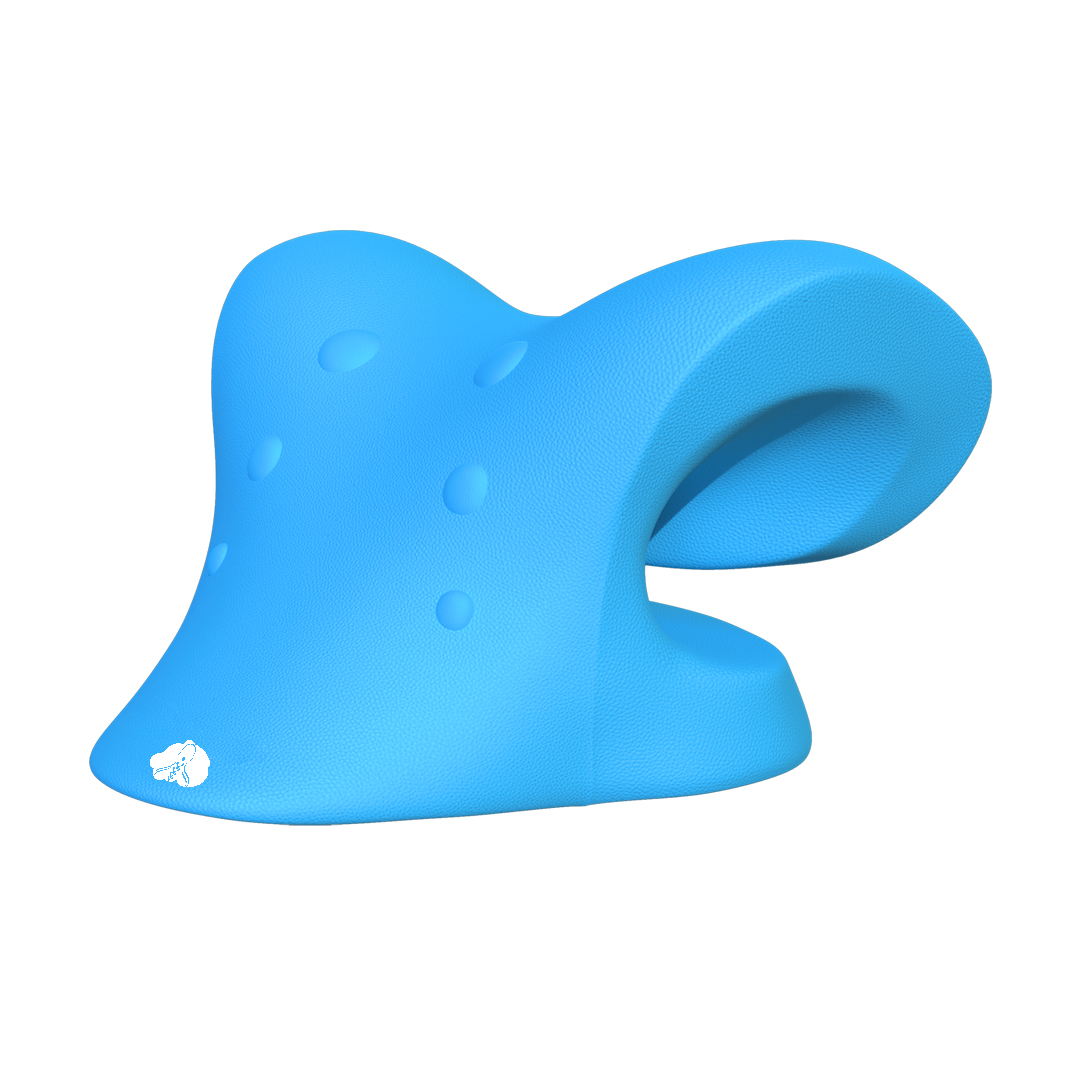Improve Your Position and Decrease Neck Pain with the Neck Cloud
Improve Your Position and Decrease Neck Pain with the Neck Cloud
Blog Article
The Effect of Stress And Anxiety on Neck Pain: Approaches for Decreasing Stress and Discomfort
In today's busy globe, it's no secret that tension has come to be a prevalent element in the onset and worsening of neck discomfort. Join us on a trip to unravel the effect of anxiety on neck discomfort and uncover effective methods to minimize pain and boost total top quality of life.
Recognizing Stress-Related Neck Discomfort
Stress-related neck discomfort can show up as tension, stiffness, or discomfort in the neck and shoulder location. The connection between stress and neck discomfort exists in the body's physical reaction to tension, which can result in muscular tissue tension and tightness in the neck muscle mass.

Identifying Common Tension Locations
Regularly experienced by individuals under stress and anxiety, tension locations in the body can offer beneficial insights right into the physical symptoms of emotional stress. One usual tension location is the neck, where stress commonly materializes literally. Tension frustrations, stiff neck muscle mass, and limited series of motion prevail symptoms of stress-related neck stress. The shoulders are one more typical location where tension builds up. Tension can trigger the muscular tissues in the shoulders to tighten up, resulting in discomfort and discomfort. In addition, the top back is prone to tension build-up, particularly in people that experience persistent stress. Poor position and extended resting can worsen stress in this field. The jaw is also a common location for stress-related tension, as lots of people clinch their jaw or grind their teeth when worried. Knowing these usual stress locations can aid people identify the physical signs of stress and take steps to address them before they escalate into chronic pain or discomfort.
Carrying Out Relaxation Techniques
To effectively manage stress-related stress in the body, carrying out relaxation strategies is critical. Leisure methods are valuable devices for minimizing neck pain created by stress and anxiety. Deep breathing exercises can help relax the mind and kick back tense muscular tissues in the neck and shoulders (neck cloud). Exercising mindfulness meditation can additionally be helpful in minimizing stress and advertising relaxation. Progressive muscular tissue relaxation, where you methodically strained and afterwards kick back different muscular tissue teams, can release built-up stress in the neck area. In addition, activities navigate to these guys like yoga exercise and tai chi integrate both physical movement and leisure, making them effective techniques for decreasing stress and anxiety and neck pain. Taking normal breaks throughout the day to stretch and relax can protect against muscle mass rigidity and tension from gathering. By integrating these leisure techniques right into your daily routine, you can aid manage anxiety levels, minimize stress in the neck, and reduce pain related to stress-induced neck pain.
Including Self-Care Practices
Integrating self-care techniques is important for preserving general health and handling stress-related neck discomfort effectively. Participating in normal physical task, such as gentle stretching exercises or yoga, can help reduce tension in the neck and shoulders. Practicing great position throughout the day and taking regular breaks from extended sitting or screen time can also avoid strain on the neck muscles.
Additionally, prioritizing sufficient rest and developing a constant sleep routine can contribute significantly to reducing stress and anxiety degrees and advertising leisure. Producing a soothing bedtime regimen, such as reviewing a book or taking a warm bathroom, can aid prepare the mind and body for peaceful rest. In addition, maintaining a balanced diet abundant in nutrients and remaining moisturized can sustain total wellness and minimize inflammation that might intensify neck discomfort.
Including mindfulness techniques, such as deep breathing exercises or reflection, can help take care of anxiety and promote leisure. Requiring time for oneself, taking part in hobbies, and establishing boundaries to shield individual time are also vital elements of self-care that can add to minimizing stress and reducing neck discomfort.
Seeking Specialist Help
Just how can individuals properly deal with persistent neck pain that is influencing their every this website day life and health? Seeking specialist help can be a crucial action in handling Get the facts and minimizing neck discomfort. Consulting with healthcare specialists such as chiropractors, physiotherapists, or orthopedic specialists can supply valuable insights and tailored treatment strategies. These professionals can perform extensive analyses to identify the underlying reasons of neck pain and suggest appropriate treatments.
Chiropractic doctors specialize in spine control strategies to improve positioning and lower tension in the neck area. Physiotherapists supply targeted exercises and stretches to reinforce muscles, enhance adaptability, and enhance overall neck function. Orthopedic experts can supply innovative medical interventions such as injections or surgical alternatives for extreme cases of neck pain.
Conclusion

Stress-related neck pain can materialize as stress, rigidity, or pain in the neck and shoulder location. The link in between anxiety and neck discomfort exists in the body's physical action to stress and anxiety, which can result in muscular tissue stress and rigidity in the neck muscle mass. Stress migraines, rigid neck muscle mass, and restricted range of motion are common signs and symptoms of stress-related neck stress. By including these leisure methods into your daily regimen, you can aid take care of anxiety levels, decrease tension in the neck, and alleviate discomfort associated with stress-induced neck discomfort.

Report this page